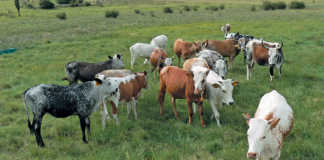
The bakkie died. Groaning in frustration, the farm manager, Justin (not his real name), climbed out and opened the bonnet.
He bent over the engine for a few minutes, then returned to the cab. This time the engine roared to life with a turn of the key.
“How did you do that?” I asked in amazement.
“Fuel pump problem,” said Justin. “It’s about time we had a few more reliable assets around here.”
He pointed to the adjacent orchard.
“What do you think of the growth on these young trees?” he asked, his mechanical woes forgotten.
“They’re a new variety and looking good, aren’t they?”
The business was in difficulty and I’d been asked by the absentee city-based owner for help.
The farm was neat and tidy, and production seemed quite normal. The owner had said that they’d been profitable during the past financial year, but now, nine months later, they were starved of cash and battling to pay their bills.
Back in the office, I asked Justin for a copy of their most recent management accounts. He mumbled something about not being so good at ‘bookwork’ and went off to find them, returning half-an-hour later with the elusive document, still in the unopened envelope from the bookkeeper.
A quick look through the accounts showed me what I’d suspected. They were way out of date and there was no comparative budget or prior year figures.
Assets and liabilities
“Where’s the problem, and what can we do to turn cash flows positive?” asked the owner when I met him a few days later.
“There’s no decent financial or management information available,” I said.
“Without that, we’re in the dark. You need to do something about it urgently.”
The owner was stunned. Justin’s ‘mechanical literacy’ was beyond question, as was his ‘agricultural literacy’.
He understood all the factors affecting good yield and high-quality fruit, and how to manage them. But when he referred to his farm bakkie as an ‘asset’, and couldn’t find an old unread set of management accounts, the message came through loud and clear. He was out of his depth when it came to the financial side of the business.
‘Financial literacy’ is much more than an important business management skill; it’s an essential life skill. We all need it to manage our personal financial affairs.
Get to know the basics!
Do you at least understand the real difference between an asset and a liability? Justin didn’t.
“An asset is something that puts money in your pocket,” explains Robert Kiyosaki in Rich Dad Poor Dad.
“A liability is something that takes money out of your pocket.”
Vehicles that require a lot of maintenance may thus be considered liabilities, not assets!
Do you understand how markets work and that the ‘interest rate’ is simply the price of money?
Do you appreciate that insurance is only one of a number of tools you can use to mitigate risk?
And what about the business scorecards: the income statement, cash flow and balance sheet?
Do you understand the difference between cash flow and cash balance; between capital and income?
Do you appreciate that profit is an opinion and the only fact is cash?
And do you understand the accrual concept and the matching principle?
Surveys repeatedly show that few people understand two crucial issues affecting their finances, for good or bad: the time value of money and the power of compound interest.
If you’re not au fait with these terms and concepts, get to know what they mean and apply your newfound knowledge. Your business and personal financial survival may depend on it.











